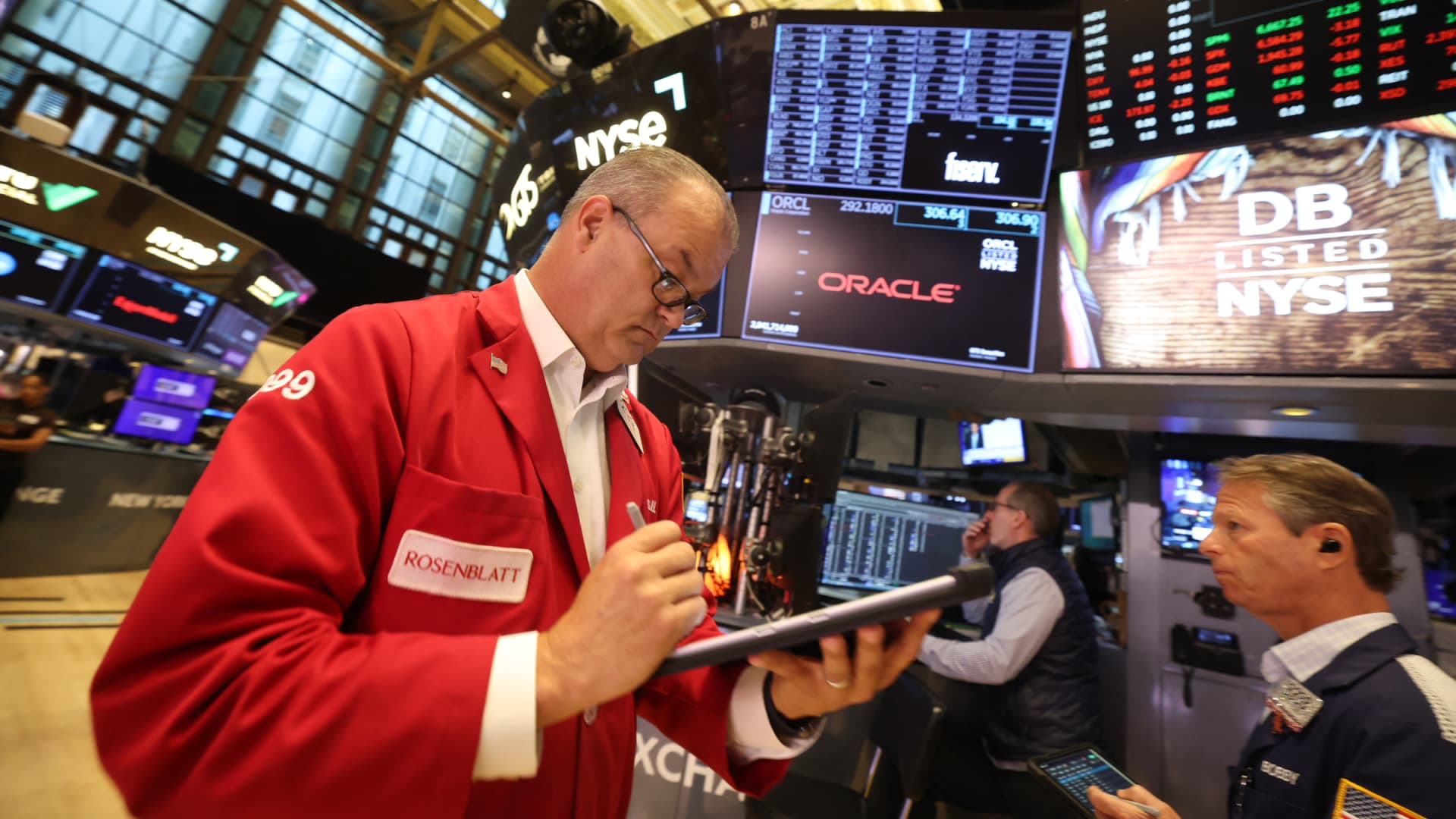It was sunny days for Oracle earlier this month after the company issued a massive cloud revenue growth forecast. Now, investors are getting worried. Oracle shares have fallen for two straight days on worries that the artificial intelligence trade may be running out of steam. Sky-high valuations and potentially risky circular relationships in the industry have also raised flags for investors. The stock has fallen 6% over the past two sessions, putting it in correction territory — down 10% from an all-time high reached Sept. 10. Shares were down again on Thursday. To be sure, this could just be a case of traders booking gains after a sharp move higher in a stock. But Rothschild & Co. Redburn thinks investors are discovering there’s something fundamentally wrong with the stock, namely that its $300 billion deal with OpenAI will not benefit Oracle as much as Wall Street expects. ORCL 5D mountain ORCL 5-day chart “The market materially overestimates the value of Oracle’s contracted cloud revenues. Its role in single-tenant, large-scale deployments is closer to that of a financier than a cloud provider, with economics far removed from the model investors prize,” analyst Alex Haissl wrote. Haissl initiated Oracle with a sell rating and a price target of $175. That implies downside of 43% from Wednesday’s close. “The market already recognises that supplying compute to OpenAI is a lower-margin business – but still assumes it will follow the Cloud-1.0 playbook, where economics improved over time through higher asset utilisation and software layering,” the analyst added. “That framework does not apply here. Oracle’s economics are largely fixed and contracted, with the upside accruing to OpenAI. It is a spread business, and our analysis shows a thin one, further constrained by OpenAI’s operational involvement in Stargate, which limits Oracle’s ability to capture value.” Haissl’s sell rating is a rare one, as 33 of 44 analysts covering the stock rate it a buy or strong buy, LSEG data shows. To be sure, this isn’t the first time an AI stalwart has faced significant pressure. Earlier this year, Nvidia sold off on concerns that the emergence of DeepSeek would curb demand for the chipmaker’s high-end processors. That concern and Trump’s tariff rollout helped fuel a vicious correction in the stock market. The stock has more than recovered and is up 31.8% in 2025. One thing is clear now, however: Investors will pay more attention to the underlying details in many of the coming AI-related deals. ( Learn the best 2026 strategies from inside the NYSE with Josh Brown and others at CNBC PRO Live. Tickets and info here . )





